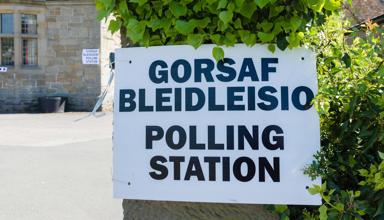Article by Richard Bettley, National Assembly for Wales Research Service
Introduction The Tax Collection and Management (Wales) Bill (PDF, 488.26KB) was laid before the Assembly on 13 July 2015. The Bill is the first in an anticipated series of three bills related to the devolution of the tax powers in the Wales Act 2014. This Bill will be followed by tax specific legislation in the next Assembly establishing the two new Welsh taxes - Land Transaction Tax ‘LTT’ and Landfill Disposals Tax ‘LDT’. The taxes are expected to apply from 1 April 2018. Bill Summary Policy Objectives of the Bill The Explanatory Memorandum (EM) (1.07MB) accompanying the Bill identifies the following policy objectives for the legislation:
- Provide a clear and strong governance framework in Wales that will support the efficient and effective collection and management of devolved Welsh taxes.
- Establish a corporate body (the Welsh Revenue Authority - WRA) that will have the responsibility for the collection and management of devolved taxes in Wales.
- Conferral of appropriate powers and duties on WRA (and taxpayers and others) in relation to the submission of tax returns and carrying out of enquiries and assessments.
- Civil investigation and enforcement powers
- Duties on taxpayers to pay penalties and interest
- Rights for taxpayers to request internal reviews of certain WRA decisions or to make appeals through tribunals
- Criminal enforcement powers
- Although the Bill includes a range of enforcement powers, based on current evidence it is not expected that these will need to be used often. More importantly, HMRC already have the same enforcement powers within Wales, and the Bill is seeking consistency for the WRA.
Bill context Devolution of tax powers Although the Wales Act will also devolve an element of income tax to Wales, subject to a referendum, the UK Government will remain responsible for the wider income tax system and HMRC will collect the devolved Welsh element of income tax in Wales. The Tax Collection and Management (Wales) Bill therefore relates only to the collection and management of the two fully devolved taxes of Stamp Duty Landfill Tax (the replacement for which in Wales will be called Land Transaction Tax) and Landfill Tax. The Bill may also apply to any new Welsh taxes which are created in the future, although the Wales Bill Command Paper notes that these taxes would need to be agreed by Parliament. The Bevan Foundation announced in June 2015 that it would begin a nine month project to consider what potential new taxes could be introduced in Wales. On the basis of Her Majesty’s Revenue and Customs (HMRC) data, the Welsh Government Treasury function estimates (PDF, 228.37KB) that Stamp Duty Land Tax has raised between £100 million and £236 million per year in Wales over recent years. Landfill Tax has been more stable at £50 million per year in Wales. This is around 1-2% of the Welsh Government block grant of £15 billion, and the block grant will be reduced to reflect the scale of the devolved tax revenues. The main purpose of devolving an element of taxation to Wales is therefore not to raise extra income, but rather to improve accountability by linking a notional element of public spending to tax revenues. Welsh Government consultations and decisions To accompany the September 2014 White Paper: Collection and management of devolved taxes in Wales, the Welsh Government launched a consultation which closed in December 2014. Consultation responses are summarised in the Explanatory Memorandum and on the Welsh Government’s website. There was broad support for:
- establishing a Welsh Revenue Authority (WRA) that would be operationally independent of the Welsh Ministers;
- the introduction of a Taxpayers’ Charter;
- the proposed core set of WRA duties;
- the proposed obligations on taxpayers; and,
- broad agreement that powers similar to those available to the UK tax authority would need to be made available to the WRA.
Two consultations were launched on LTT and LDT, both of which closed in May 2015, although no responses have yet been released. Although these consultations explore various alternatives policies they do not include detailed proposals or costings.






